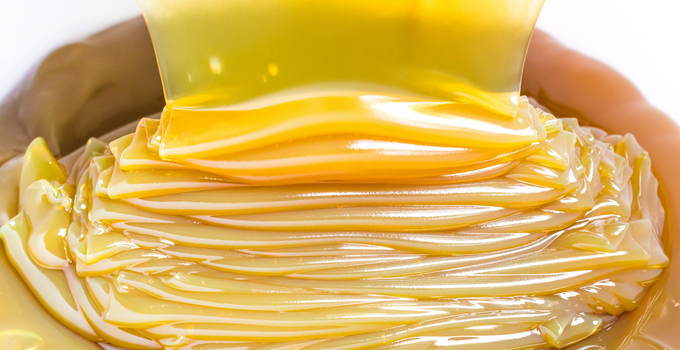Certain squeaks and sounds are to be expected if your vehicle has been around for a while. Despite this, they shouldn’t be ignored. It is detrimental to your car if you ignore noises like these. If the vehicle is damaged, it can lead to costly repairs or even have to be written off. You might hear your vehicle squeak for a number of reasons.
Rubber bushings in suspension can be a problem. If there are vibrations from the chassis as well as noises, it is likely that this is the case. In addition to becoming louder, subtle squeaks can cause irreparable damage if ignored.
Rubber bushing grease is a special type of lubricant that extends rubber component life and protects rubber components against wear. Brushes or grease guns can be used to apply them to bushings, and it is usually made from oil and soap.
Rubber bushing grease prevents premature wear and tear, as well as makes it easier to remove and replace bushings.
Rubber bushings benefit from grease that protects them from wear and tear. You will learn about grease for rubber bushings in this article.
Article Navigation
What are Rubber Bushings?
A rubber bushing consists of a cylindrical tube of rubber. They are usually bonded to the inner or outer curves of cylindrical metal parts like suspension poles. Usually made of rubber or polyurethane.
A pre-stress has been applied to the bushings. Installing them in the car makes them more durable and less susceptible to breaking.
The Best Lubricants for Bushings
Every product was carefully curated by an Esquire editor. We may earn a commission from these links.
Steel parts are generally fitted with rubber bushings in cars. Rubber bushings are primarily used to counterbalance vibration. Cars shake and take impacts when they roll along a road with various contours and changes in the surface.
Car suspension systems rely heavily on rubber bushings. Car suspension systems rely heavily on rubber bushings. If the bushings weren’t there, the car would suffer from vibration-induced damage, which is difficult to repair.
In automotive suspension systems and vibration isolation mounts, they are used in a variety of applications. The use of rubber bushings can reduce noise and vibration, as well as absorb shock.
The Benefits of using Grease for Rubber Bushings?
There are a few rubber bushings in a car, but they serve a very important purpose. As a result, your car will last longer, cost less, and be safer for all passengers. In spite of their cheap and simple construction, they are extremely valuable to any car owner.
Because grease is thick and sticky, it stays in place even under heavy loads, so it is an ideal lubricant for rubber bushings. Water and dirt can also cause premature wear on bushings, so the grease will protect them.
When Rubber Bushings are Bad, how can you tell?
Listening to sounds is a good way to identify bad rubber suspension bushings. The reasons for an inappropriate noise coming from a car are many, as we talked about above. The clutch may be malfunctioning, resulting in worrying sounds.
These noises should be detectable whether they originate in the clutch pedal or in the clutch system.
Another problem might be a squeaking steering wheel or a damaged fan. We need to take the car for a drive to find out whether rubber suspension bushings are the problem.
It is likely to be a clutch problem if you hear the sounds when changing gears. A problem with the axle or steering wheel should cause noises when you turn.
Squeaks should be heard when going over bumps or uneven surfaces if your rubber bushings are worn out. Vibration protection cannot be provided if the bushings are bad. The bushings will squeak if they rub against metal parts.
Rather than driving around the block, you should try different surfaces. The problem can also be determined by changing the speed.
The suspension system can also be checked in a garage. A suspension test can be performed. Suspension tests vary depending on the facility and experience of the technician. It may be necessary to push down on the car’s edge or to lift it up and perform involved diagnostics. Even experienced mechanics can have difficulty diagnosing noise problems, no matter how thorough the examination may be.

Why do we need to Lubricate Rubber Bushings?
It is recommended that the rubber bushings be lubricated when you purchase a new vehicle to ensure a smooth drive. In spite of pre-stressing and vibration absorption, the bushings still slowly deteriorate due to these vibrations. Rubber bushings benefit from the lubricant’s anti-friction and anti-traumatic properties.
Oil can also damage rubber bushings. It is not a good idea to expose bushings to gasoline regularly, but it can happen. In most cases, this is caused by a leak in another part of the vehicle. Heat can be an issue in warmer climates as well. Bushings crack and break as a result of heat expansion.
It will not be able to resist the corrosion caused by the elements and chemicals it comes into contact with if it is not properly lubricated. Even so, it won’t last as long as it once did. The car will feel less effective as the lubricant dries up.
There is a possibility that motion sickness will increase as a result. However, it also results in the loss of the protection that the car had previously enjoyed. Other car parts may be damaged as a result.
How to Apply Grease to Rubber Bushings?
Some lubricants may be difficult to use. It is necessary to remove the bolt holding the rubber bushing on your car before you can lubricate it. On the chassis underneath the car, this should be fairly easy to see. The following steps will show you how to lubricate rubber bushings. The following steps will show you how to lubricate rubber bushings:
- The car must be jack-hammered safely up off the ground.
- The bushing should be located. A bushing cap covers the bushings with a bar running through it (this will usually be the suspension’s sway bar).
- The bushing cap needs to be opened by unscrewing the bolt with a socket wrench. You should be able to pop out the bushing from underneath.
- Make sure the bushings are of good quality.
- Put gloves on, insert the grease gun nozzle into the bushing, and pump the gun until the grease starts to flow out. Wipe off any excess grease from the bushing after it has been well lubricated, then reattach it to the component.
- Bar bushings should be replaced.
- Screw the socket wrench back into the bolt after replacing the cap over the bushing.
Greasing the bushings is done as follows. The rubber bushing should be replaced if it is too cracked or broken to work properly. Any motor parts store can sell them for a reasonable price. You might as well lubricate all the bushings on a bar if one is creaking before the others do too.
If your car still makes noise after generously lubricating the rubber bushings (or replacing them), it may be a much more serious issue.
Noises may be caused by suspension mount problems, steering system tie rod problems, or other problems. Your car probably needs to be serviced if you have not already done so.
Related Article: What Grease for Car Door Hinge? For Longer Lasting [Explained]
What Grease for Rubber Bushings?
In today’s market, there are various grease types designed for specific applications. To maintain the integrity of rubber bushings and prevent premature wear, the type of grease you use is essential.
Lithium-based grease is one of the most commonly used types of grease for rubber bushings. High temperatures and corrosion resistance are key characteristics of this type of grease. Many applications benefit from its ease of application and removal.
Silicone-based grease can also be used for rubber bushings. Grease of this type provides superior lubrication and moisture protection. In addition to being nonflammable, it has a high flash point, making it a safe choice for a variety of applications.
Also available are other synthetic greases that contain non-petroleum oils, which offer superior performance even in extreme conditions. High-performance greases of this type are often used in applications where other types would not work. In general, it is not used as much as other types of grease because it is more expensive.
The best Grease for Rubber Bushings?
A problem with rubber bushings is that they are made of rubber. Despite their effectiveness in preventing suspension vibrations, they can also wear more readily. Rubber bushing grease should be chosen based on a few factors.
Temperature range is the first factor to consider. If the bushings are going to be exposed to high temperatures, it is important to select a grease that can withstand them.
Second, you need to determine what level of protection you need. Specifically designed greases provide better wear and tear protection for high-speed applications. The durability of some may not be as great as that of others, since they are meant for low-speed applications.
Compatibility with other materials is the third factor. Choose grease that is compatible with the bushings’ materials.
Price is the fourth factor. It is important to choose a grease that fits your budget since grease prices can vary widely.
Rubber bushings can be greased with several different kinds of grease, but lithium-based grease generally works best. Bushings will be well lubricated and protected with this type of grease, and it will also resist degradation from heat and moisture.
Grease based on silicone is another type. In addition to not breaking down rubber, this type of grease will also prevent UV damage to the rubber. Unlike other types of grease, silicone-based grease does not attract dirt and dust.
Rubber can be damaged by petroleum-based products and break more easily as a result. In the same way, petroleum-based lubricants will corrode your bushings. Oil and petroleum-based lubricants shouldn’t be used on polyurethane bushings.
You can also use other types of non-petroleum oil-based synthetic grease designed specifically for rubber bushings. Rubber bushings benefit from these because it provides superior lubrication and protection. All of these are readily available at any motor product store.
The importance of maintaining Rubber Bushings?
A vehicle’s suspension system relies heavily on rubber bushings to absorb shocks and keep the ride smooth. As these bushings wear or damage over time, the ride will become rougher and other suspension parts will wear more quickly. Therefore, they should be inspected and replaced as needed.
FAQs
1. What is the grease for rubber bushings?
Grease for rubber bushings is a lubricant specifically designed to protect and extend the life of rubber components. It is made from a base of petroleum or synthetic oil and can contain additives to improve its performance.
2. Why do I need grease for rubber bushings?
Grease for rubber bushings helps to keep rubber components lubricated and protected from moisture and other contaminants. It can also help to reduce friction and wear and extend the life of the bushings.
3. How often should I grease my rubber bushings?
It is typically recommended to grease rubber bushings every 3,000 miles or every 6 months, whichever comes first.
4. What are the consequences of not greasing my rubber bushings?
If you do not grease your rubber bushings, they will eventually dry out, crack, and break. This can lead to premature failure of the bushings and potentially other components in your suspension system.
Conclusion
What is the best grease to use for rubber bushings? In order to ensure that the bushings continue to function properly, it is necessary to keep them lubricated.
If there was no grease, the bushings would eventually dry up, crack, and break as a result of being overheated and so on.
It is true that there are other lubricants that can also be used, but grease is the most effective and reliable.





